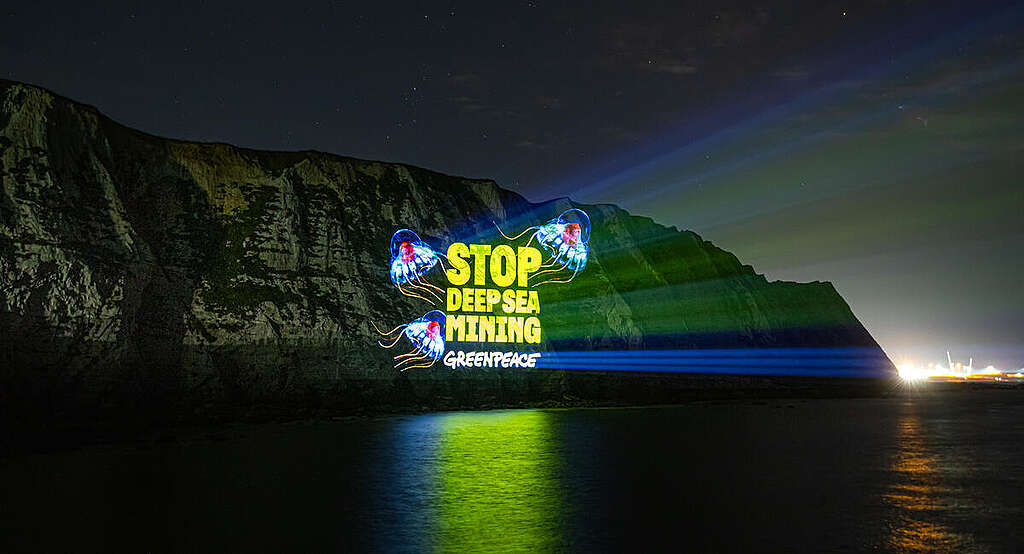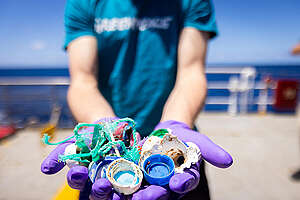2023 is a crucial year for stopping deep sea mining before it can begin. The deep sea mining industry has forced governments’ hands, using an obscure legal loophole to set an ultimatum for governments that expires in July 2023: either agree rules that formally open up the international seabed to mining by 9 July (‘the Mining Code’) or the frontrunner company could at any time apply for the first DSM contract and demand its approval by governments.

This month, governments meet to negotiate whether to allow deep sea mining at the International Seabed Authority (ISA) – the Council meets 10-21 July, followed by a meeting of the Assembly, on 24-28 July. The meeting of the Council is a decisive moment as it takes place right after the 9 July deadline has passed. A majority of the 36 members of the Council have expressed their opposition to deep sea mining starting without any rules under the so-called ‘two year rule’, but they do need to agree on a way forward which can ensure no commercial mining starts in the coming months. At the Assembly meeting, ISA member States will discuss for the first time the need for a moratorium on deep sea mining.
Greenpeace will be present at this meeting to combine lobbying inside the ISA premises, in collaboration with a large NGO community, with communications and offline activities around the world. Our aim is to both avoid the start of deep sea mining in the very near future and start building support for a legal roadmap for a moratorium on deep sea mining. We will again provide support and facilitate the participation of indigenous and youth voices at this key debate.
Key messages about Deep Sea Mining
- Governments have recklessly left the backdoor open for deep sea mining to sneak in and start operating later this year. Right now, there’s very little standing between the natural wonders of the deep ocean and the mining machines.
- While more governments are stepping up efforts to stop deep sea mining from starting this year, a handful of laggards are doing the opposite – like announcing plans to mine the Arctic seabed. It’s a matter of urgency that states gathered in Kingston give these unique and unknown areas the protection they need from this destructive industry.
- To forge ahead and consider the approval of mining licences – as the ISA is under commercial pressure to do from this July – would be criminal. It is time for governments to support a moratorium on deep sea mining and send a clear signal, hot on the heels of a historic Global Ocean Treaty, that the era of ocean destruction is over.
- Imagine if we could go back in time and stop oil drilling. Imagine preventing the ongoing climate crisis, as well as countless oil spills and leaks. Governments in Kingston have the opportunity to get ahead of a new extractive industry and stop deep sea mining before it starts.
- New scientific evidence shows that the area at the centre of the deep sea mining debate is absolutely teeming with undiscovered life – most of which only thrives in these fragile and undisturbed ecosystems – This has to be a dealbreaker for those governments still entertaining this industry.
- The deep sea mining industry claim they will solve the climate crisis by plundering the seabed, using machinery that will destroy marine life to look for metals that the seabed won’t provide.
- Growing international opposition to this risky industry is turning into political resistance. Governments from Europe to Latin America and ministers from island nations are joining Pacific activists, businesses and scientists in their call for a moratorium.
- Serious questions remain about the high-risk and high-cost of deep sea mining, while controversy over its key regulator, the ISA, keeps growing. As frontrunner The Metals Company stumbles on with its plans to mine the seafloor in the face of increasing controversy, it’s time for investors and governments to show this industry has no place in a sustainable future.
Greenpeace objectives for the International Seabed Authority (ISA) meeting:
- Demonstrate resistance to DSM is increasing across the world – online & offline mobilisation, KIs add voices, media focuses on resistance, pressure & celebrate new governments calling for a moratorium/pause
- Block industry from getting a greenlight to start DSM – pressure governments to make sure they do not allow easy approval of DSM licence, and do not finalise Mining Code allowing DSM to start. Media coverage focuses on the hurdles
- Centre the leadership of Pacific activists and communities in the movement against DSM
- Toxify the enabling environment for mining at ISA/Michael Lodge to create political space for governments to focus on protection
Despite all the efforts to get a Global Ocean Treaty agreed, the oceans remain at risk from a nascent, risky and unnecessary industry: deep sea mining. Imagine if we could go back in time and stop offshore drilling at the dawn of the oil age. Imagine preventing the ongoing climate crisis, as well as countless oil spills and leaks. We have the opportunity to get ahead of a new extractive industry: stopping it before it can ever cause widespread harm to people and planet. World leaders are coming together to decide whether they allow this industry to go ahead or put it in the bin. A moratorium on deep sea mining would allow the latter, enabling scientists to keep investigating the seabed so we can make informed and responsible decisions over the fate of an ecosystem so crucial to our lives and that we still know very little about.
People can get together and stop a new extractive industry before it can ever cause widespread harm to people and the planet. The wonders of the oceans’ ecosystems, and their generous contribution to our planet’s and people’s well being, make the need for a ban on deep sea mining.
Greenpeace has been working with members of Pacific Indigenous communities in opposing DSM. These communities have concerns around the impact the industry could have on the waters around their homes, impacting fishing and cultural heritage. The Pacific is their home and they feel that the DSM industry, whose power is concentrated in the Global North, is a new form of colonialism that shows a lack of respect and understanding about their (and all of our) relationship with the ocean.
During the ISA meeting (when it switches from Council to Assembly) we have agreed to deliver a message on behalf of members of these communities about why they are opposed to DSM and how this will impact their lives.
The depths of our oceans hide a unique living world that we barely understand, but is already under threat from the controversial deep sea mining industry. It is an unique ecosystem home to weird and wonderful creatures, with towers that are thought to protect hidden clues to the origins of life on Earth. No minerals or metals are worth destroying a place we don’t even fully understand. Companies should be investing in recycling and new technology instead of threatening marine life for profit.
The global oceans belong to no one; we all have a responsibility to play our part in securing their protection. These waters might feel remote, but what happens there impacts us all. Stopping deep sea mining before it starts would help to protect wildlife, crucial ecosystems and countless wonders that haven’t yet been discovered.

